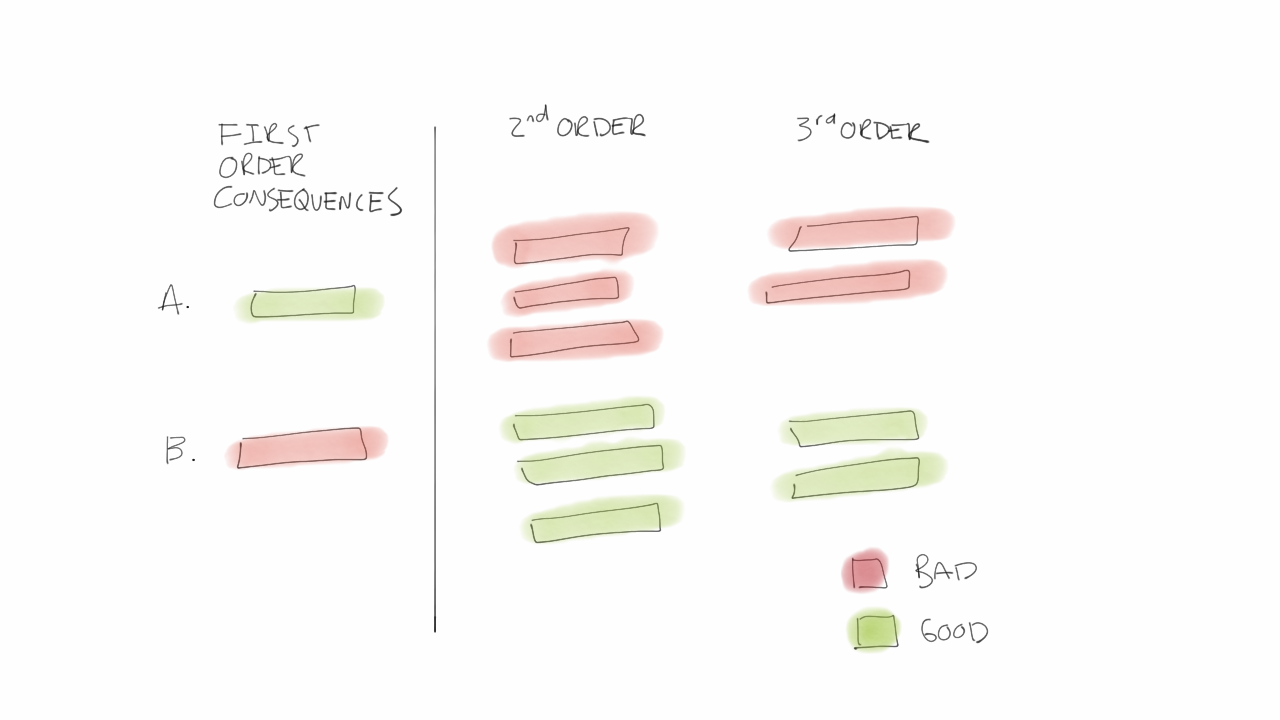On second-order thinking
Most of us think in the “first order” most of the time. We think about the immediate consequences of a decision and make the decision based on whether we consider that outcome positive or negative, good or bad.
It makes sense to think this way for recurring or daily decisions that are not worth deliberating. But attempting to think about both the immediate and future implications of more consequential decisions can be valuable and help avoid unintended consequences.
Consider the prohibition of alcohol in 1920s America. The goal of outlawing alcohol was to eliminate the alcohol trade, but because alcohol was still popular and in demand, it instead consolidated the industry within organized crime. The illegal alcohol trade even funded other criminal operations. Policymakers often struggle with the related dilemma of enacting popular short-term policies versus less appealing long-term policies with better outcomes.
Second-order thinking should guide our personal decisions too. In college, impulsive decisions like late nights and binge drinking seemed relatively harmless. But as I grew older, a single night of binge drinking began affecting me for days. If the trade-off was not worthwhile before, it certainly isn't now. I stopped drinking alcohol in 2021. Though I initially felt some FOMO in social situations, I have no desire to drink again because the long-term benefits are so obvious.
When making important life or career decisions, I find it helpful and clarifying to think beyond the simplistic and superficial first-level thought. I try to ask myself, “and then what?”
